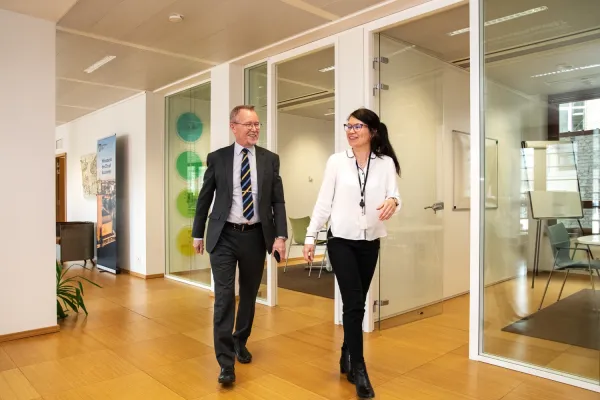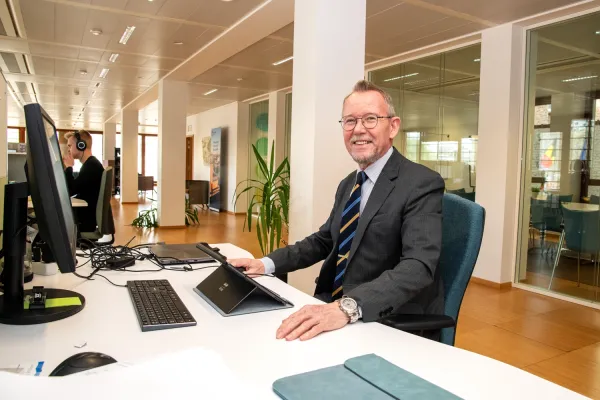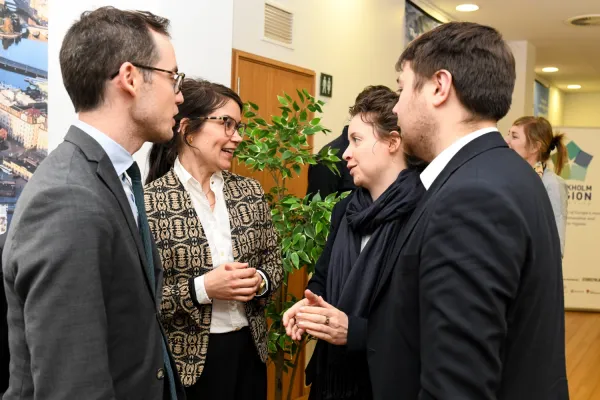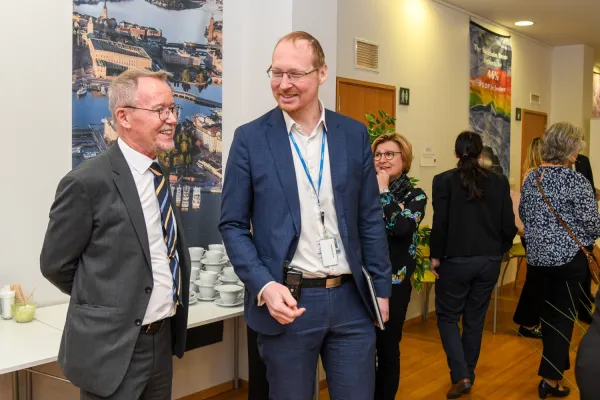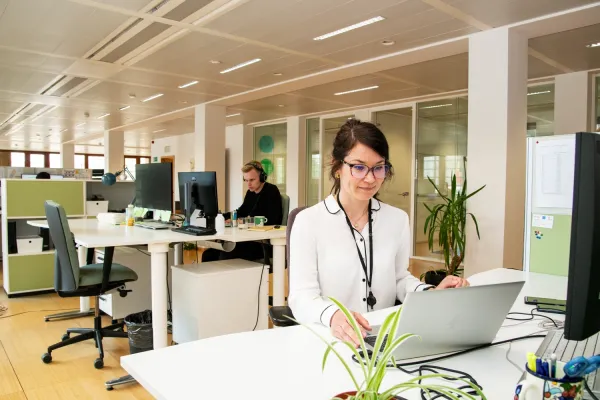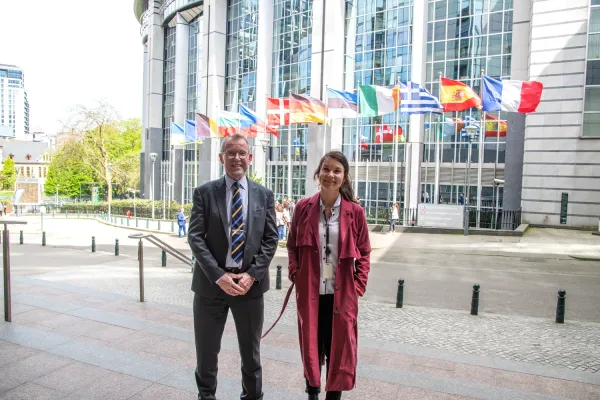Billions at stake in the EU – how Stockholm Trio in Brussels is active in European research policy
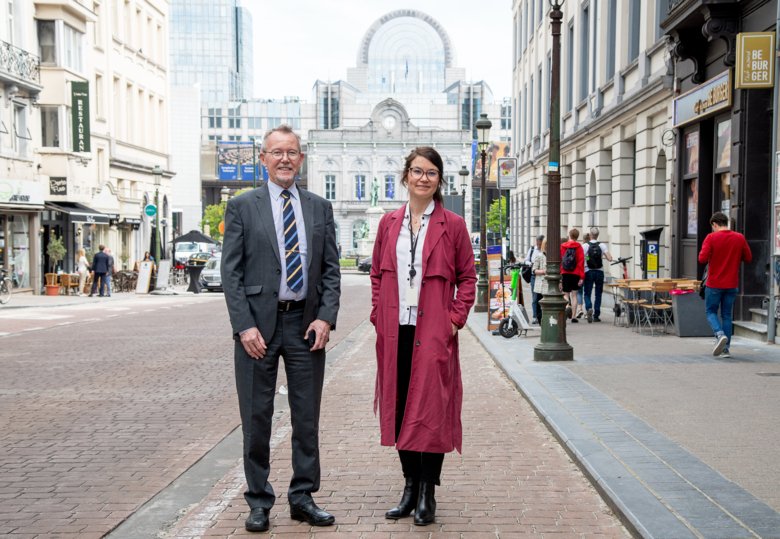
Alone, remotely, in the middle of a pandemic – this is how life in the Brussels office of the University Alliance Stockholm Trio began for the EU veteran Dan Andrée. It went at half-speed at first, but now, two and half years later, the office in the EU’s political cradle is bursting with activities.
On a busy street less than ten minutes’ walk from the European Parliament is the Brussels office of Stockholm Trio. The Alliance, which comprises Karolinska Institutet (KI), KTH Royal Institute of Technology and Stockholm University, was formed in 2019; a year later the Brussels office was opened with the aim of increasing the universities’ participation in activities linked to EU research policy.
Here, senior advisor Dan Andrée and EU Policy Officer Sanna Sjöblom represent the three universities, alongside three additional Stockholm-based advisers, who act as an extended arm of the Brussels office for each university.
They will soon be joined by a trainee. And it is needed, because now seminars and EU courses are arranged for researchers, in addition to regular activities, that aim to improve knowledge of what is happening at the EU level and thereby facilitate planning and preparation to apply for funding.
“We got off to a bit of a slow start because of the pandemic, but now we’re in an intense phase,” says Dan Andrée.
He has worked with research and education in the EU since 1983, including for the Swedish government, the European Commission and the Swedish Governmental Agency for Innovation Systems (Vinnova). In 2020, after having just moved back to Sweden, he was asked to establish an Office of Stockholm Trio in Brussels.
“I tried to move to Sweden, but it didn’t work out,” he laughs and continues: “I recognised the great potential of the Alliance. Individually, the three universities have strong brands, but together they have even greater international leverage.”
A joint force
Sanna Sjöblom nods and says that she was pleasantly surprised by the visibility of Stockholm Trio when she joined in the autumn of 2022.
“People tell me: ‘Oh, you’re from Stockholm Trio, that’s great’,” she says. “I can tell that people recognise the Alliance and want our input in all sorts of situations.”
This isn’t so surprising, given that the Stockholm Trio universities together represent the largest recipients of research grants under the Horizon Europe scheme. This is the EU’s framework programme for research and innovation, with a budget of just over EUR 95 billion for 2021–2027.
The EU’s largest ever research investment
The European Commission recently asked for a consultation on how the programme – which is the largest ever EU research investment – should progress until 2027 and during the next seven-year period, which starts in 2028 with a new budget.
For the universities, this was an opportunity to influence policies that will govern EU research funding for the coming decade. After significant deliberations, the Trio ended up with eleven recommendations that were presented to the European Commission in February.
Included are expected proposals for larger budgets and more harmonised rules, but also more niche requests, such as evaluating the new lump-sum system before full roll-out and reviewing the unequal structure for indirect costs that hits some researchers harder than others.
More money also needs to go to basic research, which, while the immediate benefits may be less clear, generates knowledge that can be hugely significant to society’s ability to tackle future challenges. A current example is the Covid vaccine, which could be quickly produced thanks to basic research.
“We also want the EU to make research a political priority in its own, and not just a means to deliver on other policies, as it is today,” Dan Andrée says.
For KI’s researchers, the stakes are huge. The EU is the single largest research funder in Europe, but the money comes with lots of strings attached and the administration is extensive.
High level politics
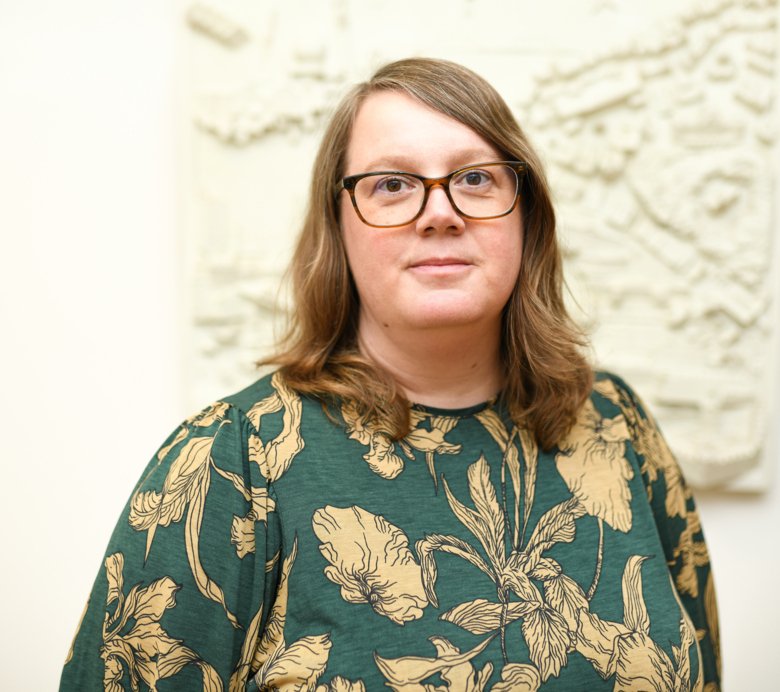
“The European Commission has thought long and hard about what types of research projects it wants to support, and the researchers need to design their projects in line with the Commission’s expectations,” says Carolina Kristell, the Brussels office KI representative in Stockholm whose job includes helping researchers apply for EU grants. “This is high-level politics and it’s very much about showing how the research will benefit society.”
Stockholm Trio’s recommendations were drafted in consultation with office managers from 150 other universities in the UnILion network. Once a week, the group meets in Brussels to exchange information, knowledge and experiences on research policy. A speaker from the European Commission often attends as well.
“It’s a fantastic forum for discussing common issues, interpreting regulations and just exchanging ideas,” says Sanna Sjöblom. “It also gives us more collective weight for the universities as actors at an EU level.”
Sifting out the information
Information is sent back to Sweden via regular reports and progress meetings with the KI Research Support Office, which includes the Brussels office. However, sifting out the important information from the dozens of daily reports and seminars is quite a challenge.
“Selecting what to focus on and how to process it is a big challenge,” Dan Andrée says.
“We also need a discussion on how policy information should be dealt with in Stockholm. Much of the focus is currently on helping the universities’ research support offices, and thereby indirectly the researchers to apply for EU grants, which is our main task. But we must also keep an eye on the future.”

